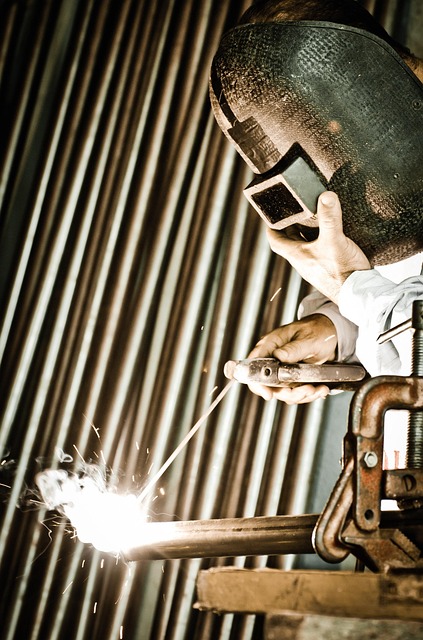Learn Welding in the United Kingdom — Training Programs for All Levels
Welding training programs in the United Kingdom provide a solid foundation for individuals interested in mastering this essential trade. These programs focus on hands-on learning, teaching techniques like arc welding, MIG, and TIG, while emphasizing safety and precision. While the training is accessible to beginners, the opportunities after completion can be significant, as the pay in welding may be higher than you think. Discover how structured training can prepare you for a rewarding career in this in-demand field.

What Types of Welding Programs Are Available in the UK?
The UK offers diverse welding training options to suit different career goals and experience levels. These include:
-
Introductory Courses: Ideal for beginners, these short programs provide a basic understanding of welding principles and hands-on experience with common techniques.
-
National Vocational Qualifications (NVQs): These work-based qualifications assess practical skills and knowledge in specific welding disciplines.
-
City & Guilds Courses: Recognized qualifications that cover a range of welding processes and skill levels.
-
Advanced Welding Programs: Designed for experienced welders looking to specialize or upgrade their skills in advanced techniques like underwater welding or aerospace welding.
-
Apprenticeships: Combining on-the-job training with classroom instruction, apprenticeships offer a comprehensive path to becoming a qualified welder.
How Long Does Welding Training Take in the UK?
The duration of welding training in the UK varies depending on the program type and level of expertise sought:
-
Short Courses: These can range from a few days to several weeks, offering focused instruction on specific welding techniques.
-
NVQ Programs: Typically take 6-12 months to complete, depending on the level and individual progress.
-
City & Guilds Qualifications: Can be completed in 3-12 months, based on the specific course and study mode.
-
Apprenticeships: Usually last 3-4 years, providing a thorough grounding in all aspects of welding.
-
Advanced Specializations: These can take anywhere from a few weeks to several months, depending on the complexity of the technique being learned.
What Safety Standards Are Taught in Welding Courses?
Safety is paramount in welding training programs across the UK. Courses typically cover:
-
Personal Protective Equipment (PPE): Proper use of helmets, gloves, and protective clothing.
-
Workplace Hazard Identification: Recognizing and mitigating risks in the welding environment.
-
Fire Safety: Understanding fire risks and prevention techniques specific to welding.
-
Electrical Safety: Proper handling of welding equipment and electrical systems.
-
Fume and Gas Exposure: Measures to protect against harmful fumes and gases produced during welding.
-
Manual Handling: Correct techniques for lifting and moving heavy materials and equipment.
What Career Opportunities Exist for Trained Welders in the UK?
Qualified welders in the UK can pursue diverse career paths across various industries:
-
Construction: Working on buildings, bridges, and infrastructure projects.
-
Manufacturing: Producing vehicles, machinery, and consumer goods.
-
Oil and Gas: Maintaining and constructing pipelines and offshore platforms.
-
Aerospace: Contributing to aircraft and spacecraft production.
-
Shipbuilding: Building and repairing ships and marine structures.
-
Nuclear Energy: Working on power plant construction and maintenance.
What Are the Latest Advancements in Welding Technology Taught in UK Programs?
UK welding programs strive to incorporate cutting-edge technologies and techniques:
-
Robotic Welding: Introduction to automated welding systems and programming.
-
Laser Welding: High-precision welding using focused laser beams.
-
Friction Stir Welding: A solid-state joining process used in aerospace and automotive industries.
-
Virtual Reality Training: Using VR simulations to practice welding techniques safely.
-
Advanced Materials: Working with new alloys and composite materials.
How Much Do Welding Training Programs Cost in the UK?
Welding training costs in the UK vary widely based on the program type, duration, and institution:
| Program Type | Provider Example | Cost Estimation |
|---|---|---|
| Short Course (1-2 weeks) | TWI Training | £1,000 - £2,500 |
| City & Guilds Level 2 | College of North West London | £1,500 - £3,000 |
| NVQ Level 3 | NETA Training | £2,000 - £4,000 |
| Welding Apprenticeship | Various Employers | Funded by employer |
| Advanced Specialization Course | The Welding Institute | £3,000 - £6,000 |
Prices, rates, or cost estimates mentioned in this article are based on the latest available information but may change over time. Independent research is advised before making financial decisions.
In conclusion, welding training programs in the UK offer a robust pathway to a rewarding career in this essential trade. From short courses to comprehensive apprenticeships, aspiring welders can find programs tailored to their needs and career goals. With a focus on safety, practical skills, and emerging technologies, these programs prepare individuals for success in various industries that rely on skilled welders.




